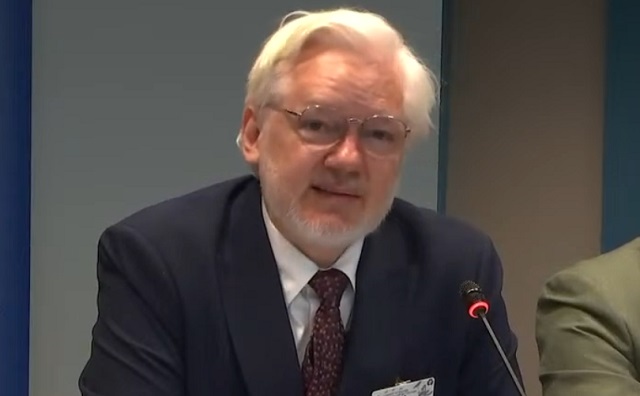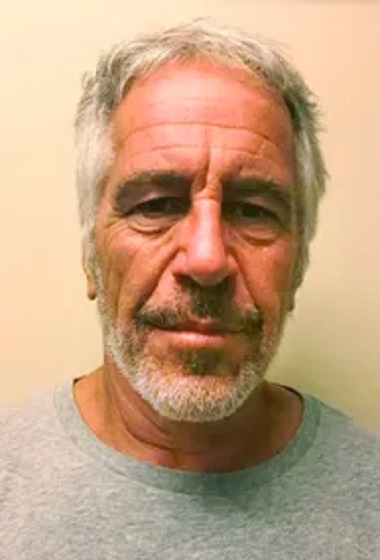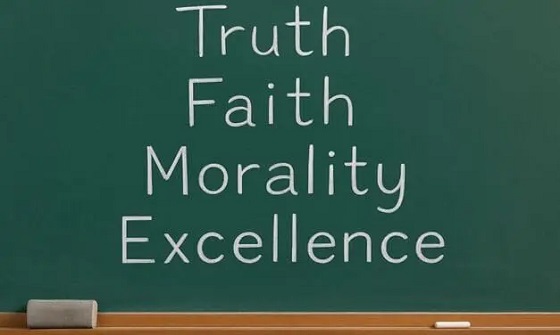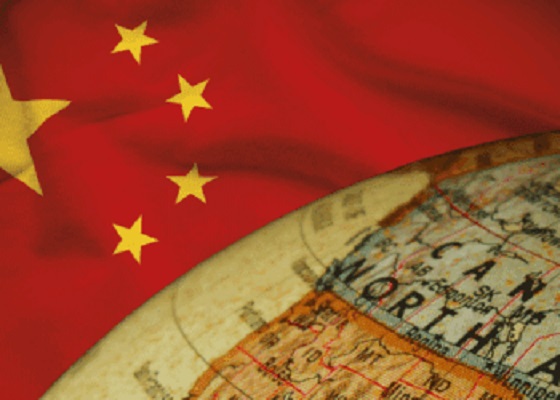International
Julian Assange breaks silence, slams Mike Pompeo for wanting to assassinate him

From LifeSiteNews
By Stephen Kokx
The WikiLeaks founder told the Parliamentary Assembly of the Council of Europe that ‘the CIA drew up plans to kidnap and assassinate me within the Ecuadorian embassy in London and authorized going after my European colleagues.’
WikiLeaks founder Julian Assange is standing by his assertion that the U.S. Deep State sought to assassinate him while he was detained.
🇪🇺JULIAN ASSANGE: THE CIA TARGETED MY WIFE AND SON
"By March 2017, WikiLeaks had exposed the CIA's infiltration of French political parties; its spying on French and German leaders.
CIA director Pompeo launched a campaign of retribution.
It is now a matter of public record… https://t.co/0GB83xT1JO pic.twitter.com/CEezku6ZKI
— Mario Nawfal (@MarioNawfal) October 1, 2024
Assange, 53, was in Strasbourg, France today making his first public appearance after being released in June from London’s high-security Belmarsh Prison, where he had been confined for five years.
Speaking to representatives of 46 countries at the Parliamentary Assembly of the Council of Europe, the Australian journalist reiterated that Mike Pompeo, Donald Trump’s CIA director, planned on killing him.
“It is now a matter of public record that under Pompeo’s explicit direction, the CIA drew up plans to kidnap and assassinate me within the Ecuadorian embassy in London and authorized going after my European colleagues, subjecting us to theft, hacking attacks, and the planting of false information,” Assange said.
“My wife and my infant son were also targeted,” he continued. “A CIA asset was permanently assigned to track my wife, and instructions were given to obtain DNA from my 6-month-old son’s nappy. This is the testimony of more than 30 current and former U.S intelligence officials speaking to the U.S. press, which has been additionally corroborated by records seized in a prosecution brought against some of the CIA agents involved.”
After founding WikiLeaks in the mid 2000s, Assange came under intense scrutiny from Western governments after he helped expose war crimes committed in Afghanistan and Iraq. He sought refuge in the Ecuadorian embassy in the U.K. beginning in 2012.
In total, Assange spent 14 years of his life as a political prisoner until he struck a plea deal this summer with the U.S. government, which had charged him with 18 counts of violating the Espionage Act. He says that he chose to make the deal as the likelihood he would ever receive justice was nearly impossible.
“The CIA’s targeting of myself, my family, and my associates through aggressive, extrajudicial, and extraterritorial means provides a rare insight into how powerful intelligence organizations engage in transnational repression,” Assange said Tuesday. “I am not free today because the system worked. I am free today after years of incarceration because I pleaded guilty to journalism.”
Reports of the CIA’s plan to take Assange out surfaced in 2021, when Yahoo News revealed that intelligence agents had stated that Pompeo had been looking into possible methods of assassinating Assange following his release of “Vault 7” in 2017, which the agency described as “the largest data loss in CIA history.”
Last year, an uncomfortable Pompeo told libertarian journalist John Stossel that it “would have been illegal” for him to draw up plans to kill Assange, who he said is simply “trying to save his tuchus.”
In November 2023, Tucker Carlson announced on X that he had visited Assange at Belmarsh. A photo he posted to the platform showed Carlson walking with Assange’s wife Stella, who was at the event in Strasbourg today.
Visiting Julian Assange at Belmarsh Prison this morning pic.twitter.com/5XR51QTZgy
— Tucker Carlson (@TuckerCarlson) November 2, 2023
Among other notable moments in WikiLeaks history is its releasing of emails from high-ranking American political actors, including longtime Clinton associate John Podesta. Podesta’s bizarrely worded emails about “President Obama,” “hot dogs,” and “cheese pizza” are believed by some to be coded messages about Washington elites engaging in pedophilia and human trafficking. Other Podesta emails indicate he had an extensive plan to liberalize core teachings of the Catholic Church under the auspices of a “Catholic Spring.”
In August 2016, Assange implied that one of his sources was slain Democratic Party staffer Seth Rich, who was found dead on the streets of Washington, D.C. in 2016 at 4:20 a.m. after being shot in the back. Some contend that the 27-year-old Rich, who was a Bernie Sanders supporter, was murdered for leaking emails about how the party rigged the presidential primary in favor of Hillary Clinton. Rich’s family – perhaps under pressure from clandestine forces to remain quiet – have stated that such accusations are untrue.
Assange and his supporters have repeatedly maintained he has done nothing wrong, stating that he is a journalist and that the public has a right to know what their corrupt leaders are doing. Governments have maintained that the data he published is top secret and that his actions did and does endanger lives.
Great Reset
U.S. rejects WHO pandemic amendments, citing threat to sovereignty

Quick Hit:
- The U.S. State Department and HHS transmitted the official rejection of the 2024 amendments to the WHO’s IHR.
- Officials cited threats to national sovereignty, vague terminology, and the WHO’s political susceptibility—particularly to China—as grounds for rejection.
- The amendments would have mandated WHO-led responses, digital health documentation, and “equitable access” initiatives regardless of U.S. withdrawal from the WHO.
RFK Jr. just announced he has rejected the WHO’s draconian new pandemic treaty.
Every American should care about this.
“Last year, the World Health Organization’s governing body made some far-reaching amendments to its international health regulations, otherwise known as the… pic.twitter.com/GI9UzsTrKv
— MAHA PAC🗽 (@MAHA_PAC) July 18, 2025
Diving Deeper:
The rejection represents a sharp rebuke of the World Health Assembly’s 2024 amendments to the International Health Regulations (2005), which sought to centralize global pandemic decision-making power within the WHO. Kennedy and Rubio emphasized the amendments’ “vague and broad” language and their potential to create policy rooted in politics and global “solidarity” rather than science and national interest.
Among the most controversial changes were new authorities for the WHO to unilaterally declare health emergencies, coordinate international responses, and guide member states toward “equitable access” to vaccines and other health commodities. The amendments also encouraged countries to implement digital health documents—raising red flags for privacy and surveillance concerns.
“The amendments risk unwarranted interference with our national sovereign right to make health policy,” the joint statement read. Kennedy and Rubio specifically criticized the lack of public input in drafting the new rules and warned that WHO directives could suppress legitimate scientific debate and restrict Americans’ freedom of speech under the guise of “controlling misinformation.”
The officials pointed to the WHO’s well-documented failures during the COVID-19 pandemic, including its deference to the Chinese Communist Party, as a stark example of why international bodies should not be granted binding authority over U.S. domestic policy. “These amendments… fail to adequately address the WHO’s susceptibility to political influence and censorship—most notably from China—during outbreaks,” the statement noted.
Even more alarming, the statement highlighted that the amended rules would have bound the U.S. regardless of its current status in the WHO, essentially imposing obligations on a nation that is no longer part of the organization. This drew particular concern from Rubio, who has long warned against ceding U.S. autonomy to global institutions.
In reaffirming their commitment to “put Americans first,” Kennedy and Rubio vowed to continue resisting international encroachments on U.S. freedoms. “We will not tolerate international policies that infringe on Americans’ speech, privacy, or personal liberties,” they declared.
This formal rejection marks a victory for critics of globalism and top-down health mandates, signaling that under the current administration, American decision-makers are prioritizing sovereignty, transparency, and constitutional protections over global consensus driven by unelected bureaucrats.
Crime
Former Epstein lawyer: There was never a client list

Quick Hit:
Jeffrey Epstein’s former attorney Alan Dershowitz says there was never a “client list,” calling the claim fiction in a Wall Street Journal op-ed. He also defended President Trump, saying there’s no evidence of any improper or questionable behavior.
Key Details:
- Dershowitz wrote that Epstein “never created a ‘client list,’” and clarified that the FBI only documented names brought up by alleged victims in interviews, which were redacted in released files.
- He stressed that none of the redacted names are current officeholders and added that the veracity of the accusations remains unknown.
- Dismissing rumors of hidden cameras used to entrap guests, Dershowitz said surveillance tapes existed only in public areas and were installed by law enforcement—not Epstein.
Diving Deeper:
In a Wall Street Journal op-ed this week, constitutional attorney Alan Dershowitz addressed lingering speculation surrounding the late Jeffrey Epstein, his alleged surveillance operation, and his reported ties to public figures. Dershowitz, who represented Epstein years ago and has consistently challenged many media narratives surrounding the case, said the facts don’t support the sensational claims.
“Epstein never created a ‘client list,’” Dershowitz wrote, pushing back on the widely circulated notion that Epstein maintained a record of high-profile individuals for the purpose of blackmail. He clarified that the FBI had compiled names mentioned by alleged victims during interviews, but that those names were redacted in publicly released documents. “We don’t know whether the accusations are true,” he added. “The names mentioned don’t include any current officeholders.”
Dershowitz also sought to debunk claims that Epstein maintained a secret camera system in his guest bedrooms to entrap powerful visitors. “There are videotapes, but they are of public areas of his Palm Beach, Fla., home,” he wrote. According to Dershowitz, those surveillance cameras were installed by police after Epstein reported that money and a firearm were stolen from the property. “I am not aware of video cameras in guest bedrooms,” he added.
Turning to President Donald Trump, Dershowitz flatly denied that any evidence exists linking him to wrongdoing. “Open records show an acquaintance between Epstein and President Trump many years ago,” he wrote, before emphasizing that the relationship ended long ago. “That relationship ended when President Trump reportedly banned Epstein from Mar-a-Lago, long before becoming president the first time.”
“I have seen nothing that would suggest anything improper or even questionable by President Trump,” Dershowitz concluded.
His remarks arrive amid a resurgence of political and media interest in Epstein’s associations. But Dershowitz’s message is clear: much of the speculation is unsupported by evidence, and President Trump’s name should not be dragged into narratives that have no basis in fact.
-

 Education1 day ago
Education1 day agoWhy more parents are turning to Christian schools
-

 Alberta1 day ago
Alberta1 day agoOPEC+ is playing a dangerous game with oil
-

 Alberta1 day ago
Alberta1 day agoUpgrades at Port of Churchill spark ambitions for nation-building Arctic exports
-

 Business1 day ago
Business1 day agoIs dirty Chinese money undermining Canada’s Arctic?
-

 COVID-191 day ago
COVID-191 day agoJapan disposes $1.6 billion worth of COVID drugs nobody used
-

 conflict1 day ago
conflict1 day agoOne of the world’s oldest Christian Communities is dying in Syria. Will the West stay silent?
-

 COVID-191 day ago
COVID-191 day agoWATCH: Big Pharma scientist admits COVID shot not ‘safe and effective’ to O’Keefe journalist
-

 Bruce Dowbiggin1 day ago
Bruce Dowbiggin1 day agoHow Did PEI Become A Forward Branch Plant For Xi’s China?





